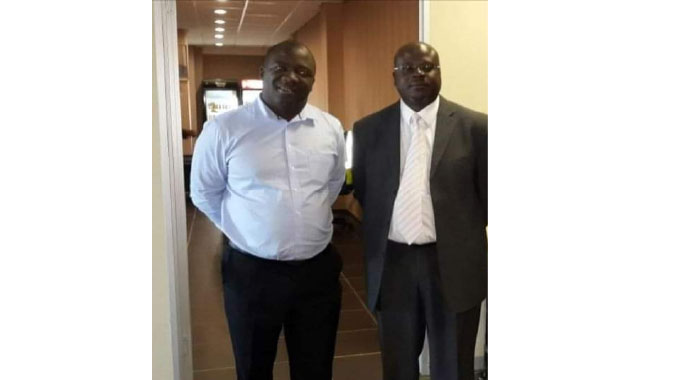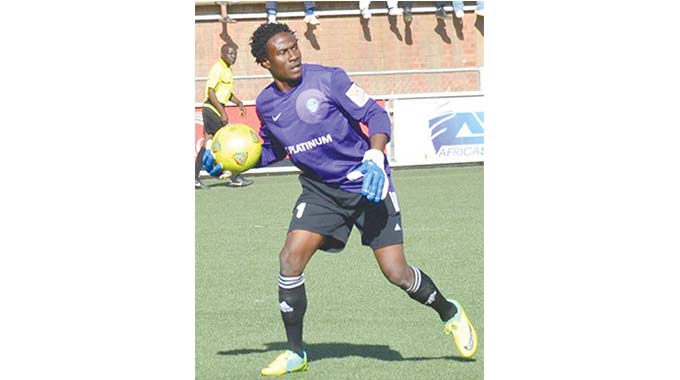Magwegwe High School agric project diversifies

Nqobile Tshili, Chronicle Reporter
MAGWEGWE High School wants to become a beacon of agricultural productivity in Bulawayo as it has diversified from just maize and horticulture cropping to fisheries and rabbitry.
In May, the school emerged the best among institutions that had embraced the Pfumvudza/Intwasa climate proofing farming method in Bulawayo following the launch of the programme last year.
It was awarded a heifer, seed maize, fertiliser among other inputs which would aid them for the 2021/22 farming season.
Magwegwe High School headmaster Mr William Ncube said participating in the agriculture awards was an eye-opener for the learning institution and it created new networks for the school.
He said as a result of their participation at the provincial awards ceremony they linked with other institutions hence the school’s decision to diversify into fish and rabbit farming.
The school on Thursday invited a team from Zimbabwe National Parks and Wildlife Authority (Zimparks) to teach a group of pupils on fish farming before the project is implemented.
Zimparks officials took the pupils through both theoretical and practical steps of fish farming.
“We were motivated by winning at the provincial agriculture awards which were held at the Zimbabwe International Exhibition Centre earlier this year. When we were at the Exhibition Centre we interacted and networked with other farmers namely those doing rabbitry and aquaculture as well. That is why we have engaged Zimparks so that they can come in and assist us introduce fish farming in our school,” he said.
“We have formed a club made up of 15 learners and this is the club that you see today so that they can embark on aquaculture.”
Mr Ncube said through partnership with a community member, the school has also introduced rabbit rearing and at the moment they have 18 rabbits at the school.
He said the school wants to ensure that agriculture is as practical as possible as it is important for the country to achieve food security.
Mr Ncube said the school was also walking the talk in terms of implementing the competence-based curriculum whose aim is to have pupils leave the secondary level with a skill.
“We believe that agriculture is the way to go. We are a developing nation and if farming is not taught to young people, then our future in terms of food self-sufficiency won’t be satisfactory. As you can see, we have mainly Form
One and Form Two classes mostly in this club. We want to cultivate and motivate them that with Agriculture they can go a long way,” said Mr Ncube.
“Our new curriculum emphasises that learners should be hands-on. That is why we have agriculture starting at early classes.
The new curriculum emphasises self-sufficiency, creativity and entrepreneurship and these are the skills that we want to impart to our pupils before they leave the school.”
Previously, concerns had been raised that the country’s education sector was producing pupils and graduates without skills hence they struggled to adjust to the broader community especially if they do not get employed.
A Zimparks officer Mr Blessing Masenga said the parastatal was teaching the school fish farming as a way of giving back to the community.
He said fish farming was a low-cost investment project with high returns.
“Fish farming is a low-cost project that I would advise anyone to start as it also has high returns. With such a low-cost project, you can even use organic foods to feed your fish. Maybe the cost that you will incur will be on setting up the fish pond and dam line only,” he said.
Mr Masenga said his hope was that when minors learn the project, they can implement it at a community level.
He said Magwegwe High School was the first institution to engage Zimparks to teach them on fish farming.
“We are doing a programme called the rangers programme where we are trying to encourage young kids to grow up with wildlife knowledge. We came with a fish farming project where we taught the kids how to farm fish. We want to make these children to be ambassadors for Zimparks,” said Mr Masenga.
“I want them to teach their peers and share the same knowledge with their parents. This is the first school that we have targeted in Bulawayo so this is our first junior ranger programme in Bulawayo.”
A Family and Religious Studies teacher at Magwegwe High School Ms Winlow Maphosa said she also took keen interest in learning fish farming as she believes she can implement it at home.
“The programme is going to help raise funds for the school but importantly it is going to equip learners so that when they leave the learning institution, they will have a skill. They can be self-employed as it teaches them practical aspects of life,” said Ms Maphosa.
“Personally, I would also embark on such a project because you can do fish farming even from your homestead. You can make a fish pond in your own homestead. You can breed these fish at your home and it can generate funds for you.”
A Form Two pupil Ishmael Chanhuwa said he believes agriculture can transform lives hence his participation in the fish farming club.
“We have been learning the advantages of fish farming. It does not use a lot of land and it does not seem to be complicated. So it is important for me to learn how to do fish farming as it will benefit me and the school especially when the project becomes commercially viable,” said Ishmael. — @nqotshili











Comments